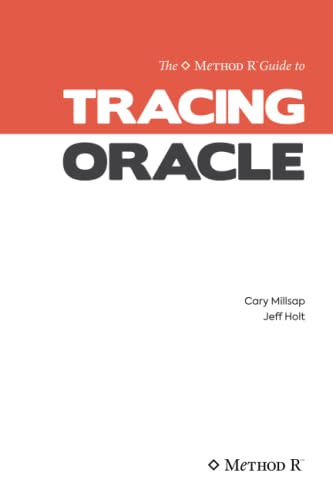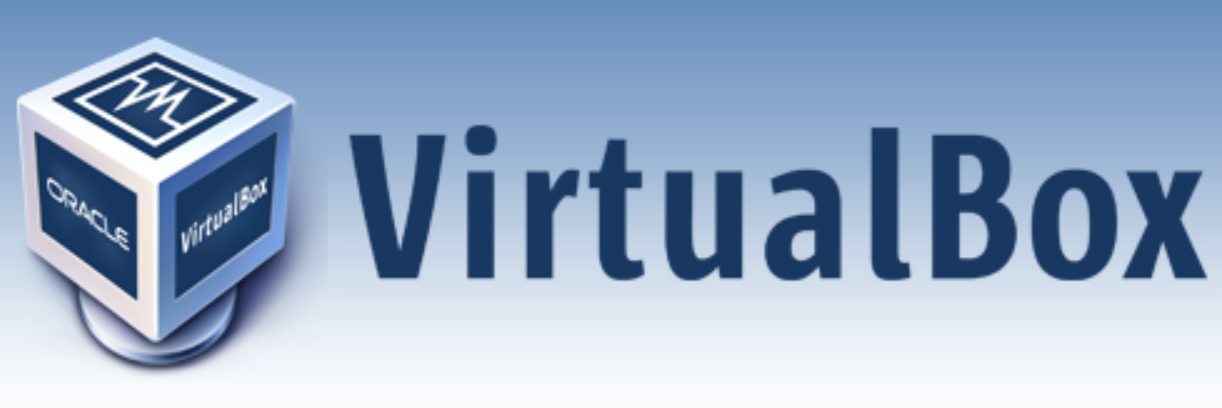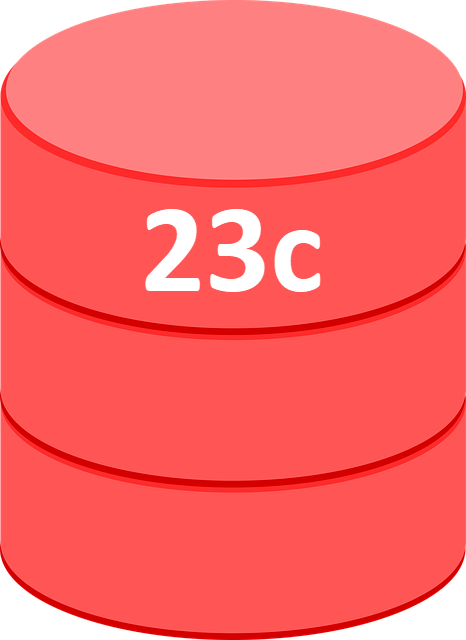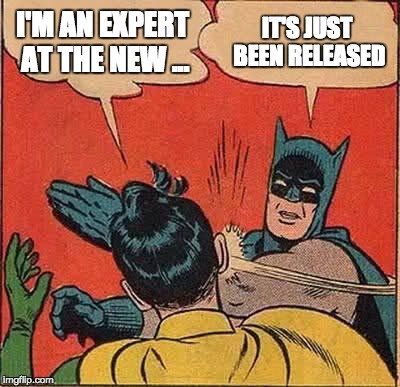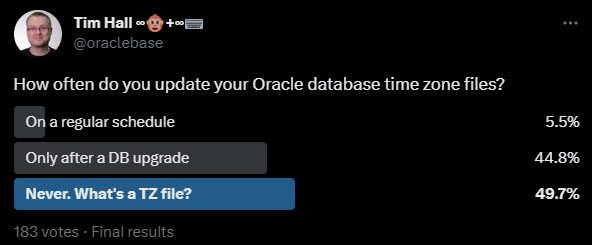
The RHEL distribution is still really popular in the enterprise Linux market. The stats sometimes look worse because the users are split across both RHEL and all of its many clones, but it still represents a massive chunk of the enterprise market. With that in mind, why are RHEL upgrades still so unreliable?
My history of OS upgrades
Over the years I’ve done loads of operating system upgrades. In “recent” times I’ve done Windows upgrades (8 -> 8.1 -> 10 -> 11) and loads of Intel macOS upgrades with minimal drama. That’s not the case with Linux.
About a decade ago I was using Fedup to upgrade between versions of Fedora. That was later replace by the DNF upgrade process. More recently I’ve tried my hand using Leapp to upgrade Oracle Linux. I’m no expert, but these upgrades always feel really janky. You never really know what you are going to get until the upgrade is complete. The milage varies depending on configuration of the server, and what software has been installed on it. In some cases you have a system that is running fine. In some cases you have a running server, but a bunch of the configuration has to be redone to make your application work. In some cases you have bricked your server. Not exactly confidence building.
So what is the alternative?
My overall feel has always been don’t upgrade! Build new kit, migrate across to it, then ditch the old kit.
In the past we would typically make that process fit with the lifespan of the physical kit, but now when we use virtual machines we could potentially have a VM that outlives the physical kit many times over, so the desire to migrate is not so pressing, and a reliable in-place upgrade process is more desirable.
Migrating to a new server comes with a hole bunch of overheads. It’s a lot more work than an in-place OS upgrade.
Infrastructure as Code
If you have true infrastructure as code, you can build new systems really quickly, including all the VMs, networking and firewalls, which just leaves you with the data migration to worry about. If you are not in that position, it’s a nightmare of service tickets and endless waiting.
Questions
Is it too much to ask for such a dominant operating system to have reliable upgrades?
I would love to know your experiences of OS upgrades for RHEL and its clones. Have I just been really unlucky with Leapp, or are upgrade really as bad as I think?
Cheers
Tim…
Update 1: I ran a poll on Twitter. There weren’t many responses, but at least I can see I’m not completely alone. 🙂
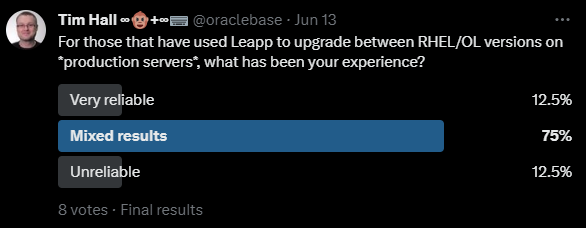
Update 2: There are some interesting responses in the comments. Well worth you giving them a look.

